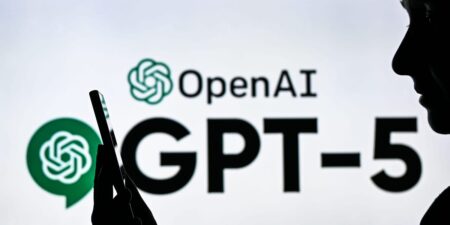Welcome back to our Sunday edition, where we round up some of our top stories and take you inside our newsroom.
The world took a turn last night. President Donald Trump said US warplanes executed airstrikes that “completely and totally obliterated” Iran’s key nuclear enrichment facilities. Trump also warned additional attacks against Iran could follow if “peace does not come quickly.”
Business Insider jumped into action, with warfare pro Jake Epstein joining with Katherine Tangalakis-Lippert to give you a definitive roundup of the news. We’ve since gathered business leaders’ reactions and will keep adding as they come.
We’re working on more for you, including a deep look at the “bunker-buster bombs” that the US reportedly dropped. The Pentagon is set to hold a press conference on Sunday at 8 a.m. ET. We’ll keep you posted on all things related to business as well as warfare strategy.
On the agenda today:
But first: Rip the Band-Aid off.
If this was forwarded to you, sign up here. Download Business Insider’s app here.
This week’s dispatch
AI acknowledgment
One way to think about Amazon CEO Andy Jassy’s AI warning: It’s better to hear it sooner than later.
In a note to staffers last week that rocked the corporate world, Jassy said AI “should change the way our work is done,” and he expects the technology will eventually lead to fewer white-collar jobs at Amazon.
He isn’t the first CEO to warn about AI’s impact on jobs, but he is the most high-profile leader to do so. (Amazon, with about 1.5 million workers, is the second-largest private employer in the US.)
As my BI colleague Tim Paradis reported, there’s an upside to hearing Jassy’s forthrightness about AI.
“If I were an employee, I would be very frustrated with my leader saying, ‘No, we’re still not sure if this is going to have an impact,'” Christopher Myers, the faculty director of the Center for Innovative Leadership at the Johns Hopkins Carey Business School, told Paradis.
He said it’s better for executives to acknowledge that AI “almost certainly” will change roles and perhaps impact entire org charts.
Jassy joins a list of CEOs who have recently offered AI warnings, including companies tied to the tech’s success like OpenAI’s Sam Altman, Anthropic’s Dario Amodei, and Nvidia’s Jensen Huang.
To be sure, a former Amazon developer told BI that Jassy’s memo didn’t surprise him. He doesn’t think engineers should worry about their jobs, as he thought the memo was more about showing shareholders that Amazon was serious about the technology.
Overall, workers have mixed feelings about these AI warnings.
Elaine Ryan, a psychologist with two decades of experience, told BI that she thinks people who have anxiety over AI feel disoriented by the sheer scale of the technology. They don’t just worry about losing their jobs but also about losing relevance or their sense of identity.
Amid the warnings and anxiety, there is plenty of advice about what workers can do in the current environment.
Duolingo CEO Luis von Ahn has said it’s important to respond to AI with curiosity, not fear. “The sooner we learn how to use it and use it responsibly, the better off we will be in the long run,” he said.
Jassy said Amazon employees who show a willingness to embrace AI “will be well-positioned to have high impact and help us reinvent the company.”
And Ryan, the psychologist, said that while AI might be new, the way we respond to the uncertainty surrounding it isn’t.
“The goal isn’t to compete with the machine. It’s to reclaim the human part— the experience, the depth, the emotional intelligence — that still matters more than we think,” she said.
The plight of the sandwich generation
Many Gen Xers are in a financial bind. They’re managing the real-estate assets of their aging parents while also helping pay rent for their adult children — two cohorts that, for different reasons, can’t quite support themselves on their own.
That pressure has left some Gen Xers emotionally exhausted and wondering if they’ll even be able to afford retirement.
Still, they’re not giving up.
Travelers and foodies, rejoice!
New perks and updates are coming to two of the most popular credit cards. American Express said updates are coming to its Platinum Card later this year.
JPMorgan Chase also announced a revamp to its Sapphire Reserve Card. Cardholders will see new spending perks in categories like travel, dining, and lifestyle. But it’s getting a price hike.
Here’s what $795 a year will get you.
Target’s trying times
In recent years, Target has fallen behind. The retailer has struggled to grow its sales as competitors Costco and Walmart have posted strong gains. Analysts and some customers on social media say the general state of Target’s stores is a key issue.
BI visited three Target locations across the US — Madison, Wisconsin, Ventura, California, and Washington, DC — to find out why the retailer is struggling. Each store offered a different experience.
Here’s what BI saw.
Also read:
Dear Blackstone interns …
Blackstone CEO Steve Schwarzman greeted the firm’s 170 summer interns with some choice advice: If you want to succeed in private equity, learn to go with the flow.
It’s an industry where “nothing ever stays the same,” Schwarzman said, according to a Blackstone spokesperson. “So if you have a mind and a curiosity that fits with that kind of world — constant new things, new learning — then you’ve come to the right place.”
Change is the constant.
Also read:
This week’s quote:
“The index is going nowhere.”
— Billionaire investor Leon Cooperman gave BI his outlook on the stock market.
More of this week’s top reads:
- AI and sports were hot topics at the ad industry’s Cannes Lions bash. Just don’t mention “brand safety.”
- Ambitious Gen Zers are struggling to get jobs despite having college degrees.
- The Big Stay is finally paying off: Quitting to job-switch is worse for wage growth than sticking it out.
- Private equity took Jamie Dimon’s warnings to heart. Here’s why.
- Job search going nowhere? Try this.
- Will AI kill TV or make it smarter? Media execs share five key ways the industry is transforming.
- The 25 most innovative CMOs of 2025.
- An ex-Harvard professor says his AI could prevent the next world war. Critics say it could start one.
- “Copilot” this, “Copilot” that. A watchdog wants Microsoft to change its confusing AI advertising.
- Get ready for WhatsApp ads.
-
Meta’s Scale AI deal has clients like Google and OpenAI halting projects.
The BI Today team: Steve Russolillo, chief news editor, in New York. Dan DeFrancesco, deputy editor and anchor, in New York. Akin Oyedele, deputy editor, in New York. Grace Lett, editor, in Chicago. Amanda Yen, associate editor, in New York.
Read the full article here
















